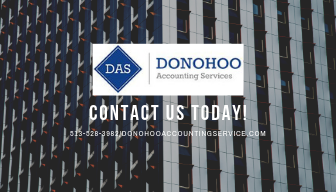
(97)
For businesses large and small, staying in the black during the COVID-19 pandemic required an immense amount of skill, strategy and cost-cutting measures. The Coronavirus Aid, Relief and Economic Security (CARES) Act, passed in March 2020, provided relief measures to help businesses and individuals survive their economic challenges.
One of these relief measures, the Deferred Payroll Tax, gave employers the option to defer their portion of Social Security taxes while business remained slow or stopped. This option was different from the additional executive order signed by President Donald Trump in August 2020 which allowed employees to defer their Social Security taxes.
Normally, employees and employers pay a combined 12.4 percent of each paycheck to the federal government for Social Security, with 6.2 percent by employers and 6.2 percent by employees. For employees, this is usually labeled FICA tax on pay stubs (FICA stands for Federal Insurance Contributions Act).
With businesses being hit hard by the pandemic, the federal government offered the option for employers to suspend payment of their half of these taxes, which many businesses decided to do to stay afloat.
For employers who opted in: it is now time to pay back the money owed. Repayment for these deferred loans began January 1, 2021, and these taxes need to be repaid by the end of this year (technically January 3, 2022, as December 31, 2021 is a holiday) to avoid any penalties from the federal government.
The IRS has made it clear that penalties and interest will apply to any unpaid balance of the deferred portion not paid on time, and that for employees who no longer work at the company or organization, the employer is entirely responsible for the deferred amount, both for their portion and the employees’ portion.
If you’re an employer who opted to defer your taxes, planning your repayment schedule needs to start now. Calculate the amount that you have due and set aside a portion of revenue to help fulfill this need during the next few months. More information about specific deadlines, and where to send your payments, is available on the IRS website. Your tax professional can also answer your specific questions, and help you make a plan.
With all the stress of the pandemic, accounting for your deferred payments doesn’t have to be challenging. Donohoo Accounting Services has more than 20 years of experience helping clients resolve their tax and financial issues. Contact us today or call 513-528-3982 for more information about repaying deferred payroll taxes, or to schedule a free consultation. We’re excited to serve you! For more tips and our latest updates, check us out on Facebook, Twitter or LinkedIn!

©2016-2023 Donohoo Accounting Services All rights reserved
Design By: Web Strategy Plus